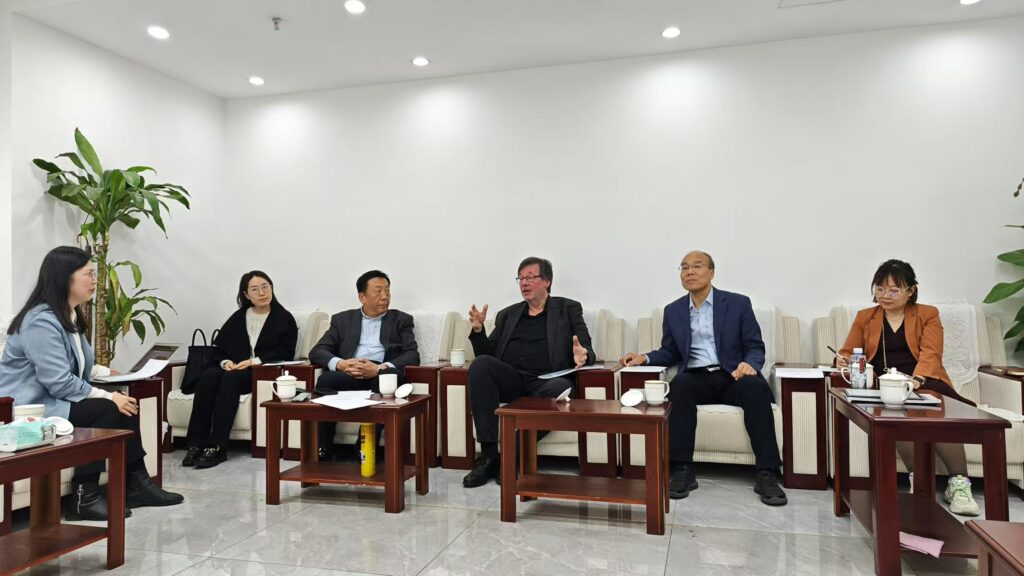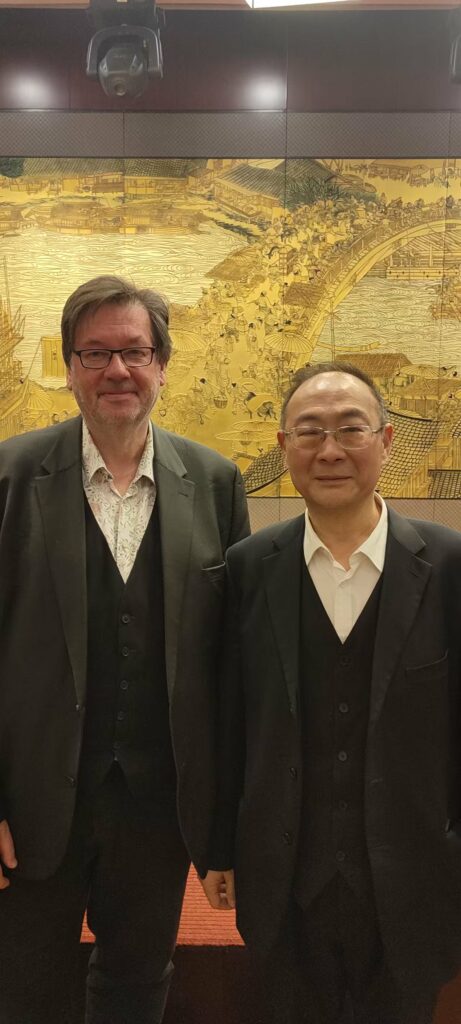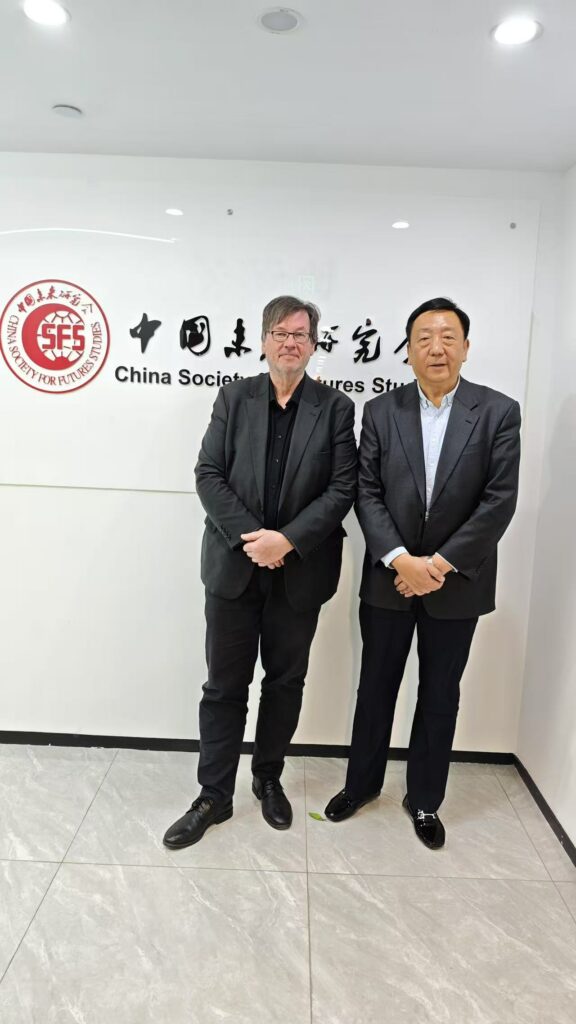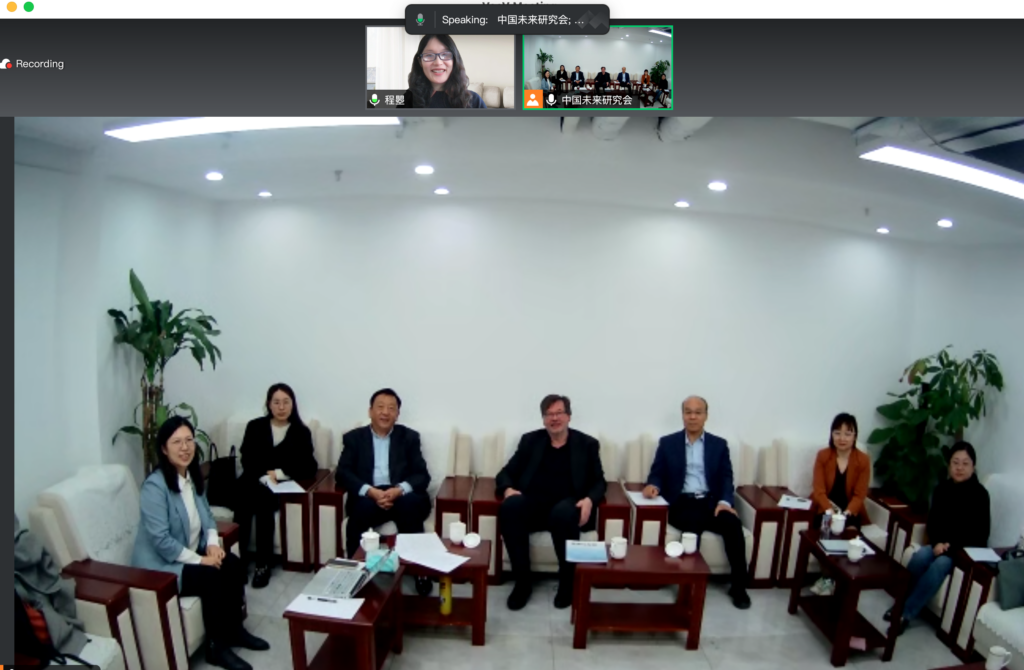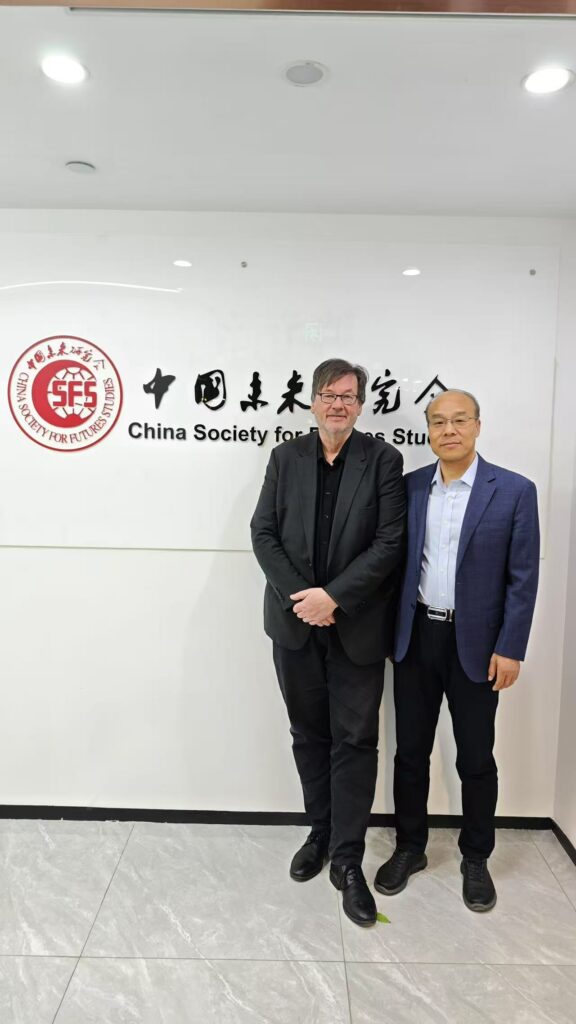Future Industries and Innovation Ecosystem: Voice of Global Think Tanks
Beijing, China – March 28, 2025: The 2025 Global Science and Technology Innovation High Level Think Tank Forum was held at the Zhongguancun International Innovation Center, China’s “Silicon Valley”. With the theme of “Future Industries and Innovation Ecosystem: Voice of Global Think Tanks”, the Think Tank Forum invited 4 domestic and foreign academicians, 1 ambassador to China, 3 representatives of international organizations, 95 domestic and foreign think tanks, and more than 500 people from more than 50 countries and regions to participate in the event.
Erik F. Øverland, President of the World Futures Studies Federation, pointed out that the pace of scientific and technological innovation is becoming increasingly rapid, and the wave of technological change is sweeping the world with unprecedented force. He called for cooperation to build a better future with leading technology, social equity, environmental friendliness, and cultural prosperity.
Download: Letter of Appreciation to the World Futures Studies Federation:
Download: Letter of Appreciation to the President of the World Futures Studies Federation:
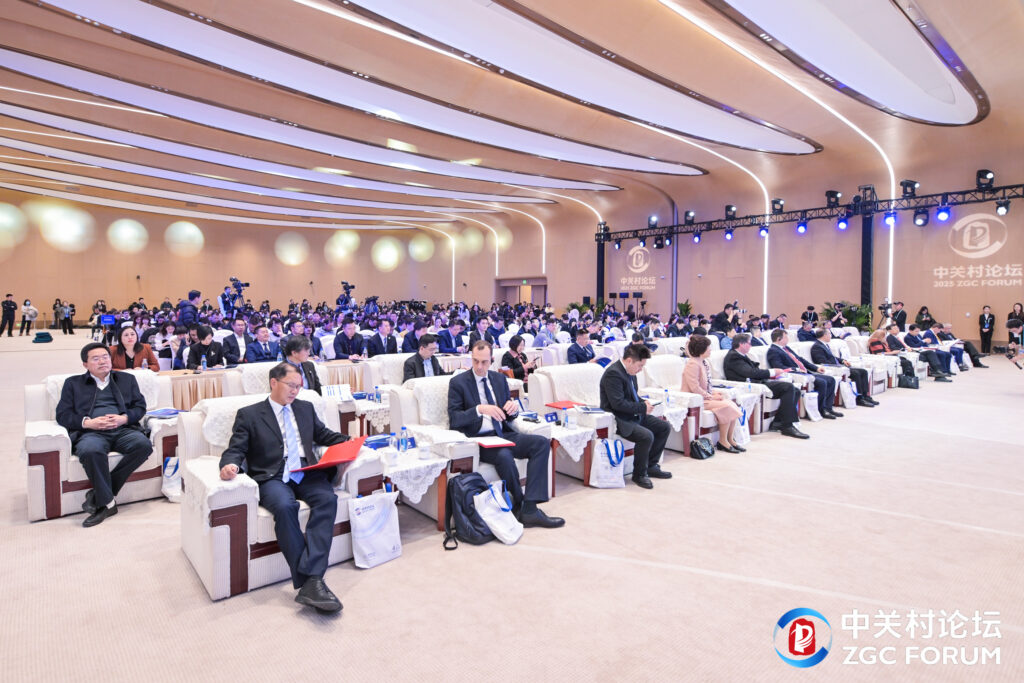
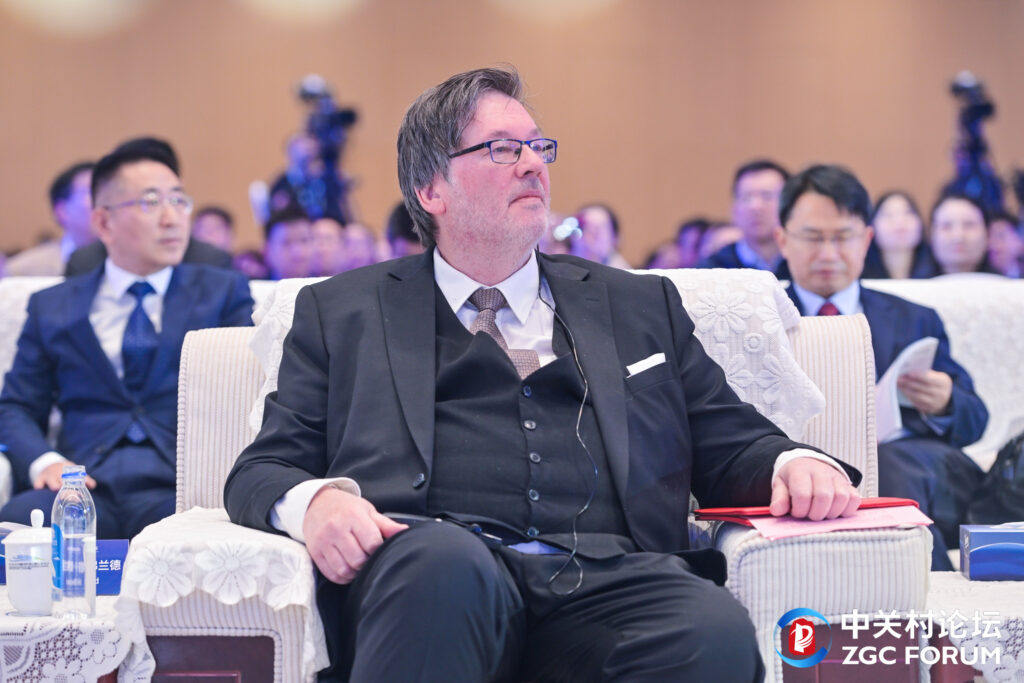
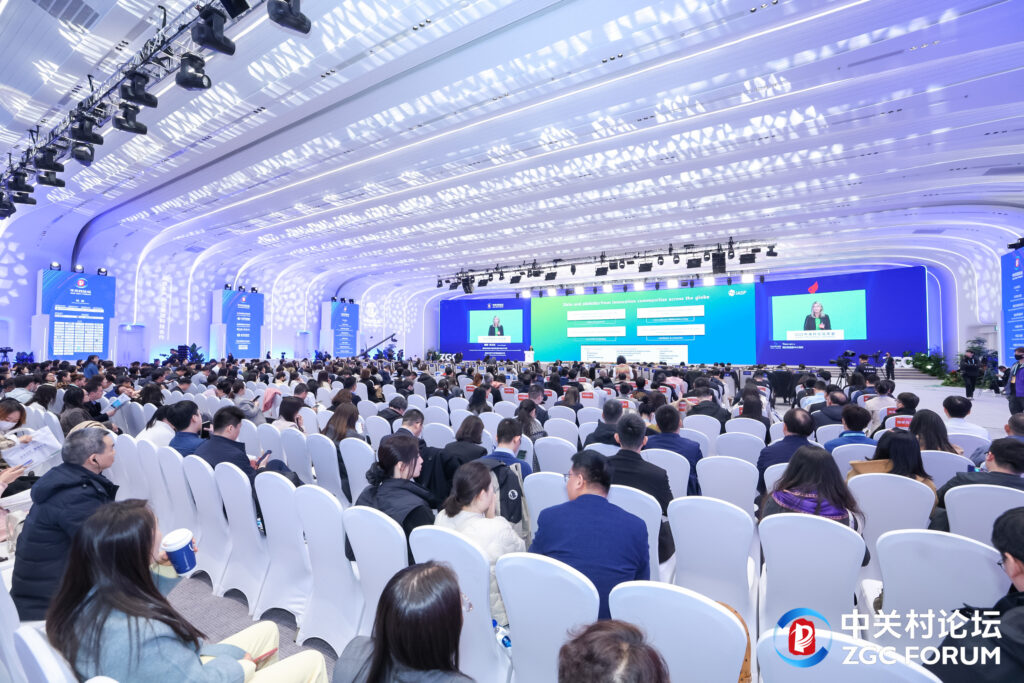
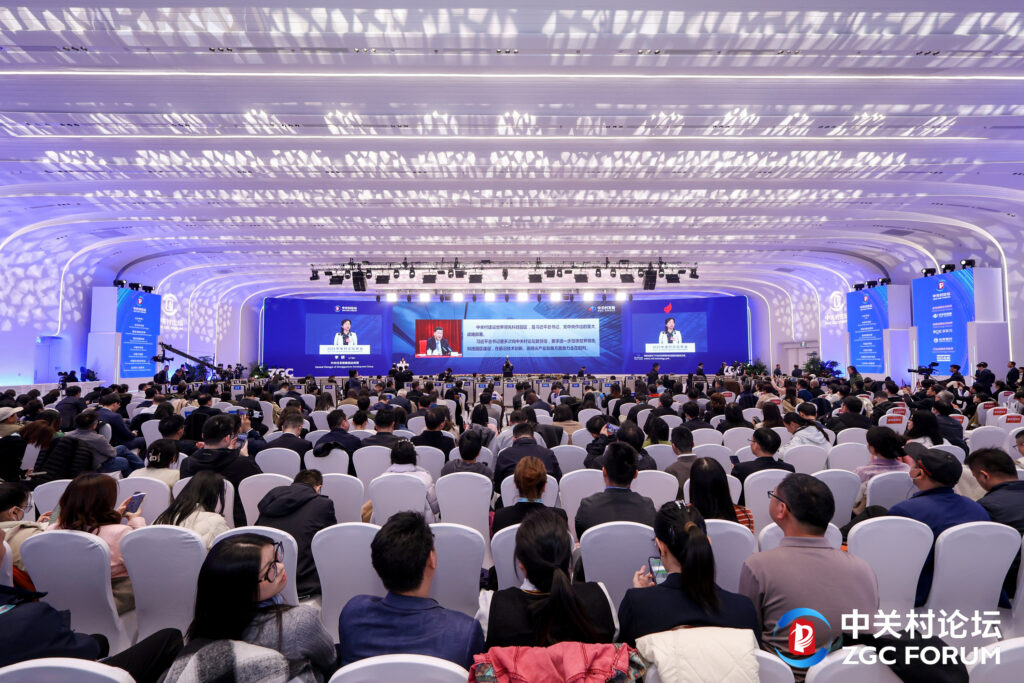
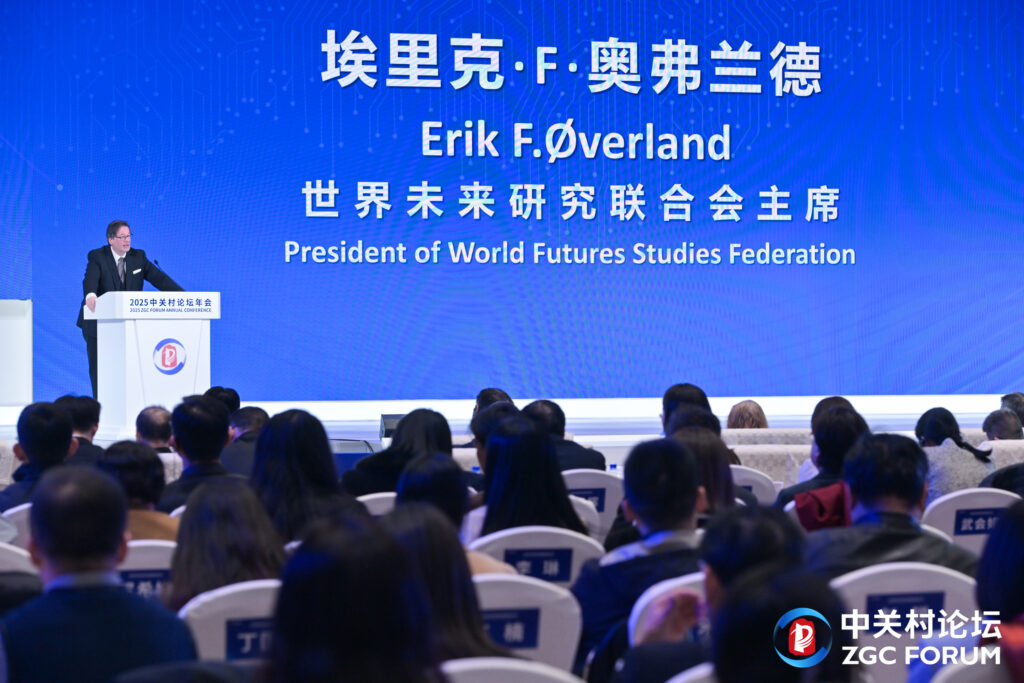
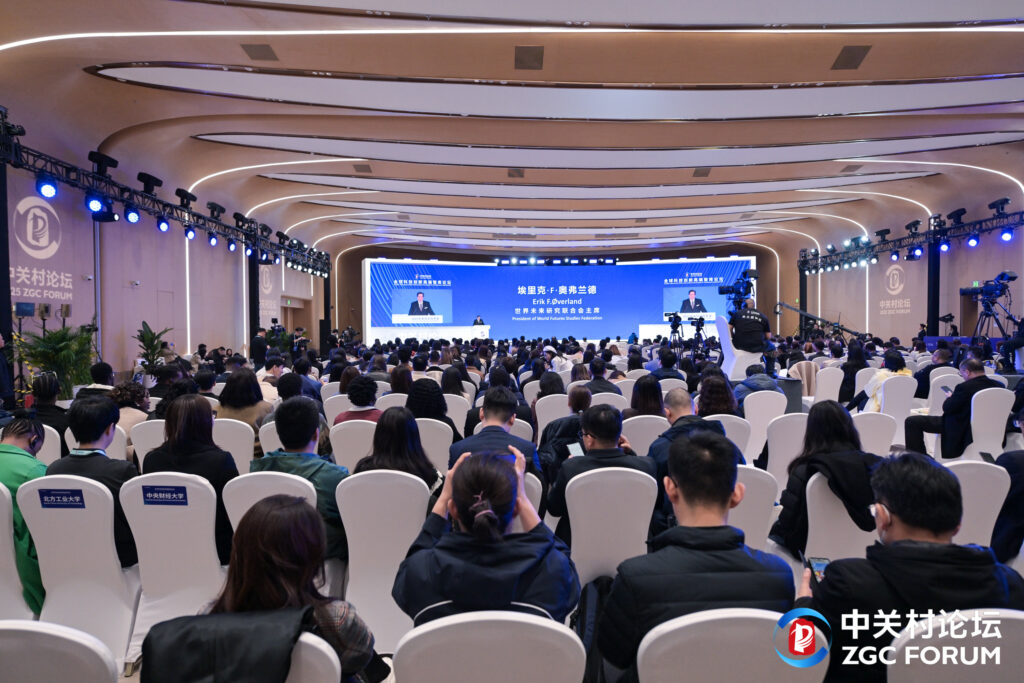
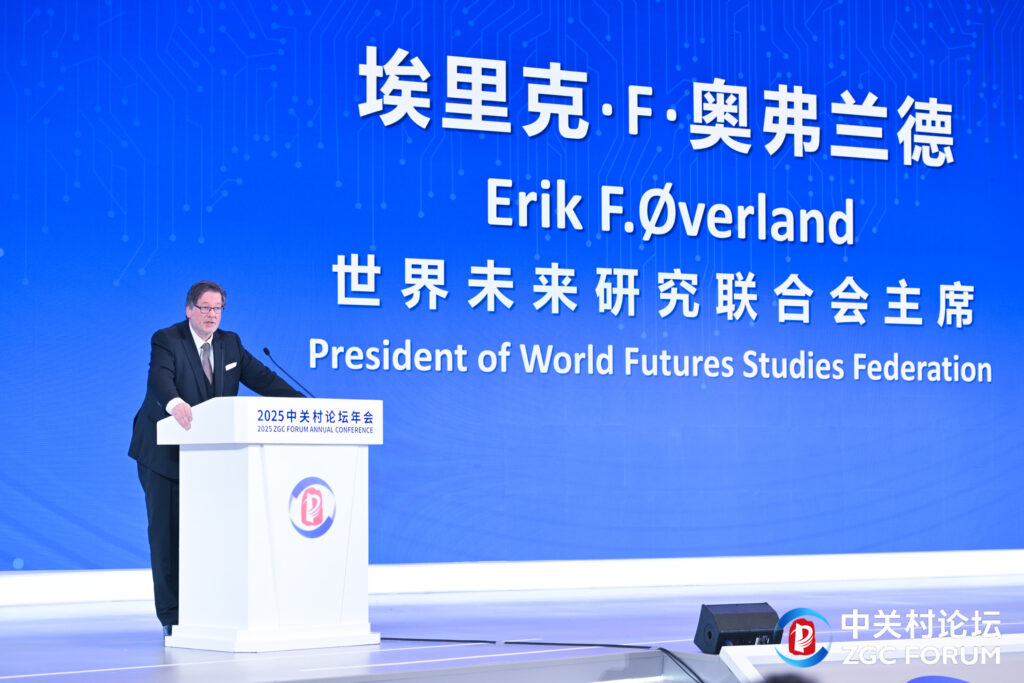
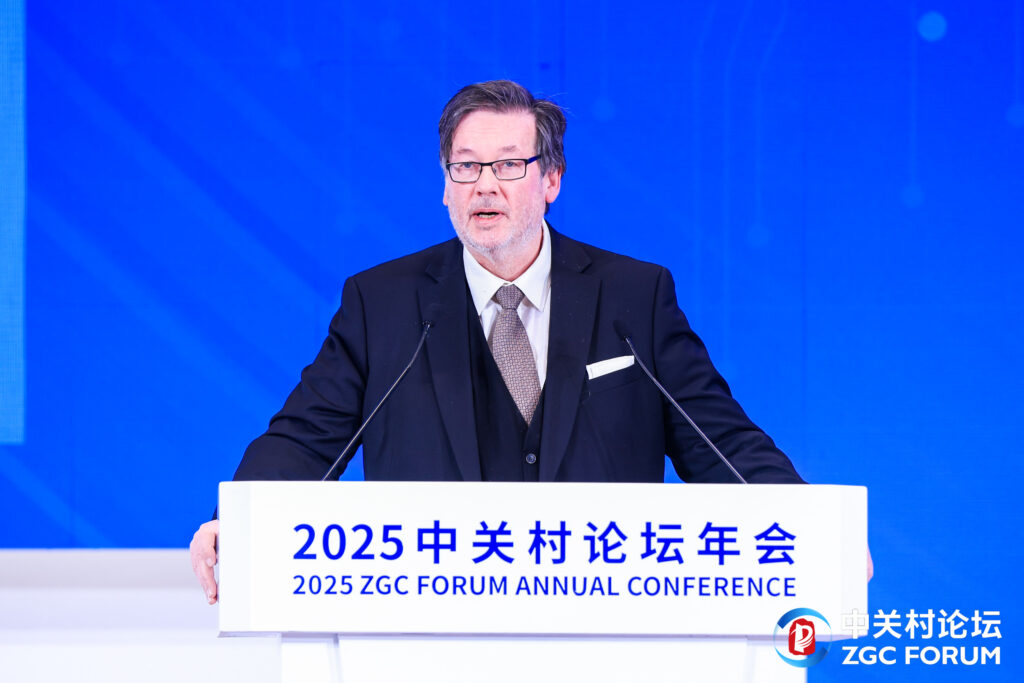


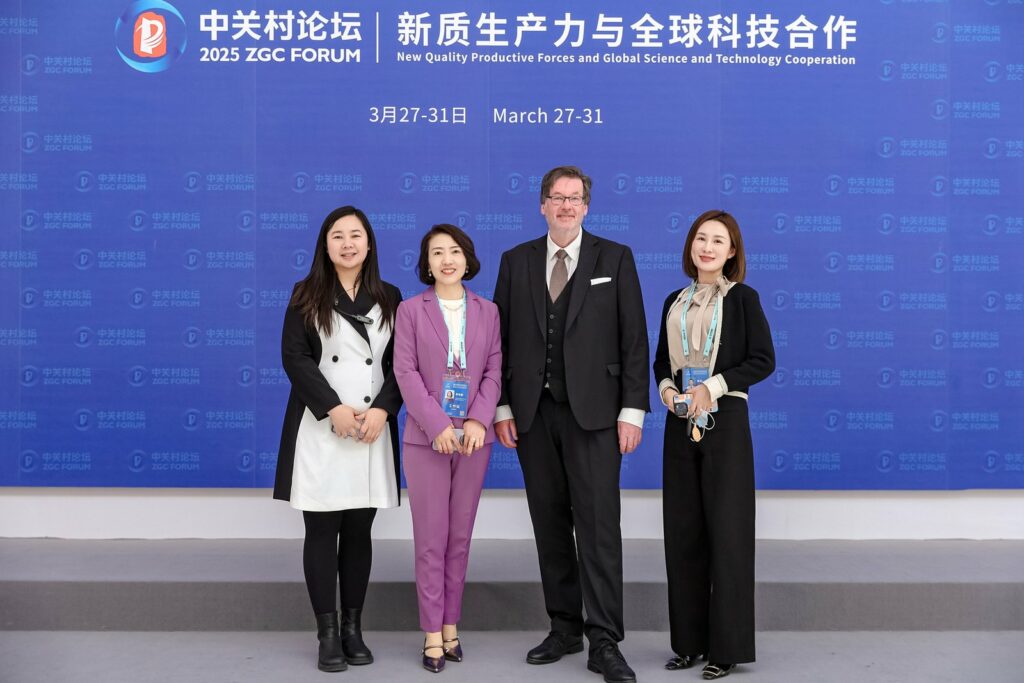
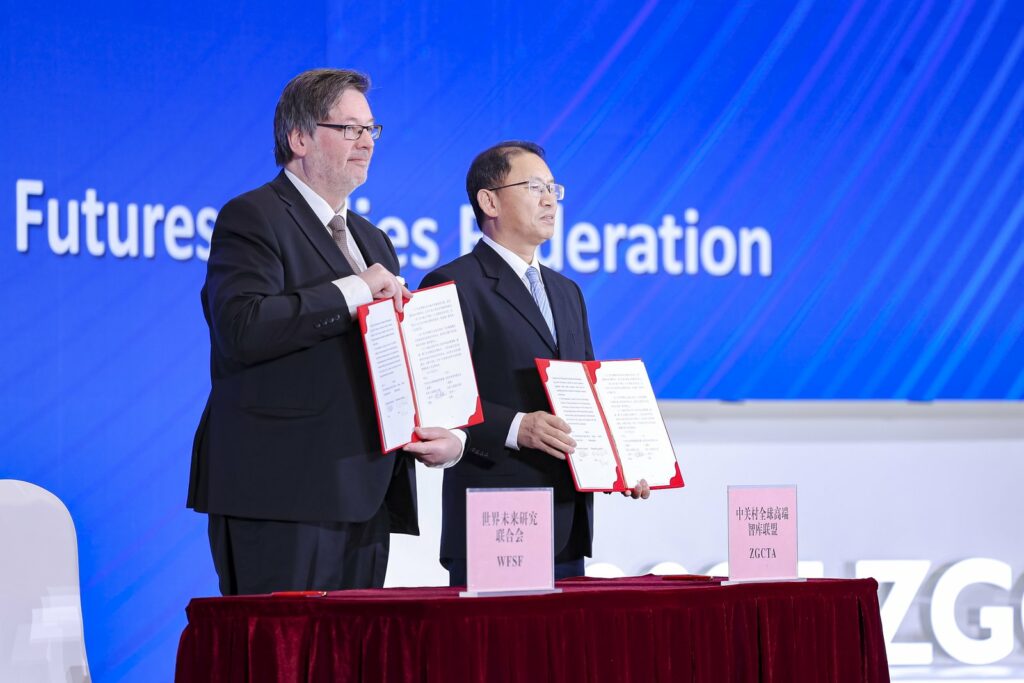



WFSF President holds meeting with senior officials of China Society for Futures Studies
Beijing, China – March 29, 2025. Secretary-General of China Society for Futures Studies, Chen Hui introduced the development history, membership structure and organizational activities of China Society for Futures Studies. The Society actively participates in international conferences, such as the 25th World Conference of the World Futures Studies Federation (WFSF). In the meeting the fragmentation and lack of systematization of futures studies, among other topics, were discussed.
Report by China Society for Futures Studies
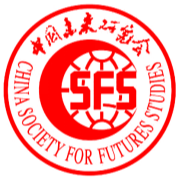
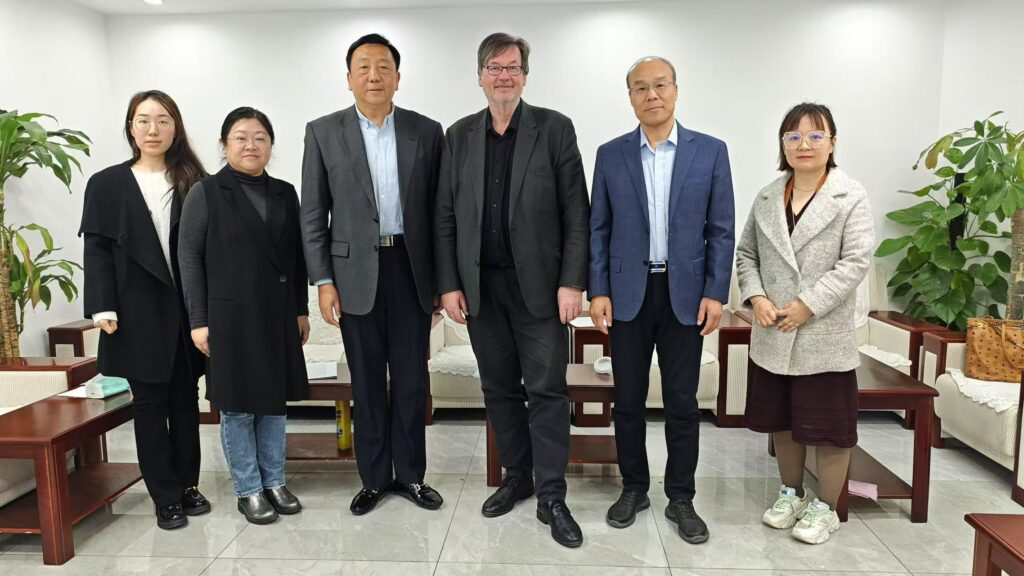
Meeting time: 16:00, March 29, 2025
Meeting format: China Society for Futures Studies meeting room
Meeting theme: World Futures Research Exchange Meeting, discussed how to systematically evaluate and certify issues, put forward suggestions for establishing common standards, and discussed the professionalism and methodology of futures research.
Participants: Wang Ge, Chen Hui, Erik F. Øverland, Zhang Xue, Liu Hui, Cheng Zhao (online), Shi Chao, Zhou Yizhen
Meeting Content
- Introduction to the development history of China Society for Futures Studies
Secretary-General Chen Hui introduced the development history, membership structure and organizational activities of China Society for Futures Studies. The Society actively participates in international conferences, such as the 25th World Conference of the World Futures Studies Federation (WFSF). The meeting discussed the fragmentation and lack of systematization of futures studies.
- Discussion on the accreditation system and accreditation issues in the field of futures studies.
Erik F. Øverland, President of the WFSF, introduced the operation of the accreditation committee, including the review and evaluation of higher education institutions and universities applying for accreditation by a committee composed of experts. Currently, the University of Houston Foresight Program and a few more have obtained accreditation for the futures studies major. For individuals who meet the standards, they can also be issued certificates of membership once they apply to join the WFSF.
The meeting discussed the differences in accreditation standards between China and the world, hoping to create a unified standard to better promote accreditation projects, so as to better help the education of futures studies. The meeting also discussed the professionalism and membership level of futures studies. Vice President Wang Ge pointed out that there are many uncertainties facing futures studies. In futures studies, methodological research is needed. At the same time, the importance of membership level is mentioned. Branches can be established in the research associations to conduct futures studies in higher education institutions and universities in China. Cheng Zhao added that it is possible to start from classic books and list books as a basis for professional futures researchers or futures studies.
- Explore ways to improve the influence of futures studies
The meeting proposed that the WFSF, as an international organization, should have an international report to evaluate world economic, scientific and technological issues, political landscape, etc., which can promote the development of members of China Society for Futures Studies and improve the influence of futures research.
- Methods and education of futures studies
First, futures studies needs to have its own systematic research methods, not limited to futures studies itself, but also draw on the research methods of other mature disciplines. Secondly, futurists usually come from different disciplines and put forward their views on future development through their respective professional backgrounds and futures research methods.
The meeting discussed the educational foundation of futures research. First, professionals are interested in futures research in their own fields and carry out futures research on this basis; second, the thinking and practice of futures research are introduced into education, and futures research experts are trained from undergraduate level. Erik F. Øverland and Cheng Zhao discussed this topic in detail and expressed their respective views.
- Expansion of members of the WFSF and publication of books on futures research
Erik F. Øverland proposed that one of the priorities of the WFSF is to expand the membership without affecting the quality of the federation and to make relevant connections between members.
Chen Hui introduced the research work of China Society for Futures Studies and planned to compile a Chinese version of a professional book on the theoretical framework of futures studies. Deputy Secretary-General Zhang Xue introduced the outline and main content of the book at the meeting. This book summarizes the development process, core professional viewpoints, major academic achievements, representative figures and influence of futures studies. It serves as a basic professional book for popularizing futures studies in China and lays the foundation for the publication of subsequent series of books.
- Constructing a futures research system
Futures research involves a wide range of content. Without a clear classification system, it is difficult for researchers to find their areas of interest. Therefore, it is necessary to establish a classification system so that researchers can find the content of interest in this system and conduct research. The meeting discussed that futures research lacks a unified standard at this stage, and the current research materials are not enough to make futures studies an independent discipline. In order to better understand futures studies, Zhang Xue and Liu Hui introduced the framework of the futures studies system that has been improved for a year. Cheng Zhao supplemented it. Erik F. Øverland was deeply interested in it and invited relevant scholars to participate and jointly promote the development of futures studies.
China Society for Futures Studies took the lead in building a futures research system. It is hoped that this system can be open to futures studies researchers around the world to jointly improve and develop. High-quality futures research requires interdisciplinary collaboration and discussion. In the future, a database can be established based on this research system to bring together the results of global futures studies research.
- Social impact and challenges of futures research
Futures research should be carried out in layers. Wang Ge pointed out that there are many non-futurist scholars abroad who are conducting some high-quality future trend research. Chen Hui proposed that futures research should form a pyramid structure. The top layer is the futures studies academic system, which mainly includes futures studies theory, research methods, models, etc.; the middle should be futures studies application research, which not only requires the participation of futures studies scholars, but also hopes that top scholars in various fields can use the above methods to conduct cross-disciplinary cross-integrated research; the bottom layer is the promotion and popularization of futures research. Futures research should not be limited to the academic field, but should be oriented to the entire society, so that more people, enterprises, and governments can understand the results of futures research.
Minutes released by the Secretariat of China Society for Futures Studies
March 29, 2025
